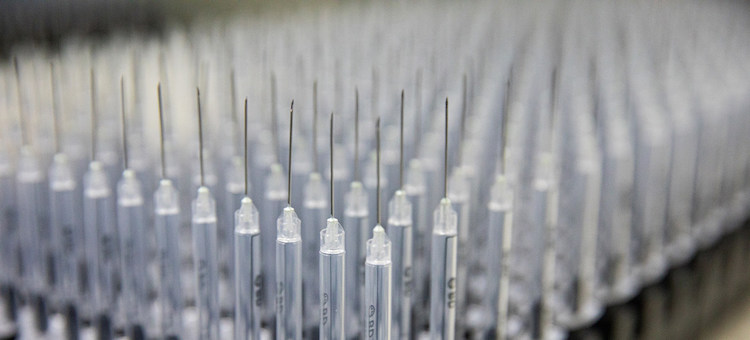By J Nastranis
NEW YORK (IDN) — New research has cautioned against the growing trend towards “vaccine nationalism” where countries prioritize their own vaccine needs. The study warns that in monopolizing the supply of vaccines against the Covid-19 pandemic, wealthy nations are threatening economic destruction which will hit affluent countries nearly as hard as those in the developing world.
Even if wealthy nations are fully vaccinated by the middle of this year, and poor countries largely shut out, the study concludes that the global economy would suffer losses exceeding $9 trillion, a sum greater than the annual output of Japan and Germany combined. Nearly half of those costs would be absorbed by wealthy countries like the United States, Canada and Britain. INDONESIAN | JAPANESE | THAI | TURKISH
Another new study warns that vaccine nationalism could lead to the unequal allocation of COVID-19 vaccines and cost the global economy up to $1.2 trillion a year in terms of gross domestic product (GDP). Because even if some countries manage to immunise their populations against the virus, as long as the virus is not under control in all regions of the world, there will continue to be a global economic cost associated with the pandemic.
“The global cost associated with COVID-19 and its economic impact could be $3.4 trillion a year. For the EU it will be about 5.6 per cent in annual GDP, about $983 billion. The loss incurred by the UK is about 4.3 per cent — an annual loss of about $145 billion. The US loses about 2.2 per cent in annual GDP, about $480 billion,” say authors of the study by Rand Corporation.
Even if nationalistic behaviour is inevitable, there are economic incentives for providing access to vaccines across the globe. Based on previous estimates, the study points out, it would cost $25 billion to supply lower-income countries with vaccines.
The US, Britain, the European Union and other high-income countries combined could lose about $119 billion a year if the poorest countries are denied a supply. “If these high-income countries paid for the supply of vaccines, there could be a benefit-to-cost ratio of 4.8 to 1. For every $1 spent, high-income countries would get back about $4.8,” says the report.
These figures speak for themselves. But UN Deputy Secretary-General Amina J. Mohammed says: “Over the past year, we’ve all missed out on doing the things we love to do with others—eating, hugging, and going to school and work.”
At the same time, millions of us have lost someone we love or had our livelihoods taken away. According to the World Health Organization, more than 2.5 million people around the world have died from COVID-19. The COVID-19 vaccines will stop people from dying, prevent new variants from emerging, reignite economies and offer the best hope to end the pandemic.
“Only together can we end the pandemic and transform a new era of hope,” says the UN deputy chief. With this in view, the United Nations has launched a new global campaign, Only Together, to support its call for fair and equitable access to COVID-19 vaccines around the world.
The campaign emphasizes the need for coordinated global action to ensure vaccines are accessible in all countries, starting with health-care workers and the most vulnerable.
Ms Mohammed points out that an unprecedented global scientific effort for vaccines has indeed given us hope to defeat the virus. In fact The biggest vaccine rollout in history is now underway with millions of doses being delivered around the world, including to some of the world’s poorest countries, through the efforts of COVAX, the global vaccine equity mechanism.
Launching the initiative on March 11, UN Secretary-General António Guterres expressed concern over “a small number of rich countries are rolling out a majority of the doses”. He emphasized that “COVID-19 vaccines must be considered a global public good.”
COVID19 vaccines should be available to “everyone, everywhere”. This year of the crisis has caused a tidal wave of suffering, he added. “#OnlyTogether can we all end this pandemic & get back to the things we love.”
As it is, the current number of doses will initially only cover a small segment of the populations —healthcare workers and the most vulnerable. By the end of 2021, COVAX, therefore, plans to offer vaccines to nearly 30 per cent of each participating country’s population. But that progress pales compared to ten rich countries who possess nearly 80 per cent of all COVID-19 vaccines, with some planning to vaccinate their entire population within the next few months.
COVAX, which is led by the World Health Organization, GAVI and the Coalition for Epidemic Preparedness Innovations (CEPI), and in partnership with UNICEF, has 190 participating countries. It needs more than US$2 billion to fully meet its goal to vaccinate those most in need by the end of the year.
The United Nations is of the view that pledging new funding for COVAX is critical, but more can be done to scale up vaccine access by sharing excess vaccines, transferring technology, offering voluntary licensing or even waiving intellectual property rights.
“If the world’s scientists were able to develop safe and effective vaccines in just seven months, the aims of world’s leaders must be equally record-breaking—to provide enough funding and to ramp up manufacturing to enable everyone on earth to be vaccinated,” said UN Under-Secretary-General for Global Communications Melissa Fleming. [IDN-InDepthNews – 12 March 2021]
Photo: Syringes are assembled and then packaged in a facility in Spain. © UNICEF/Francis Kokoroko




